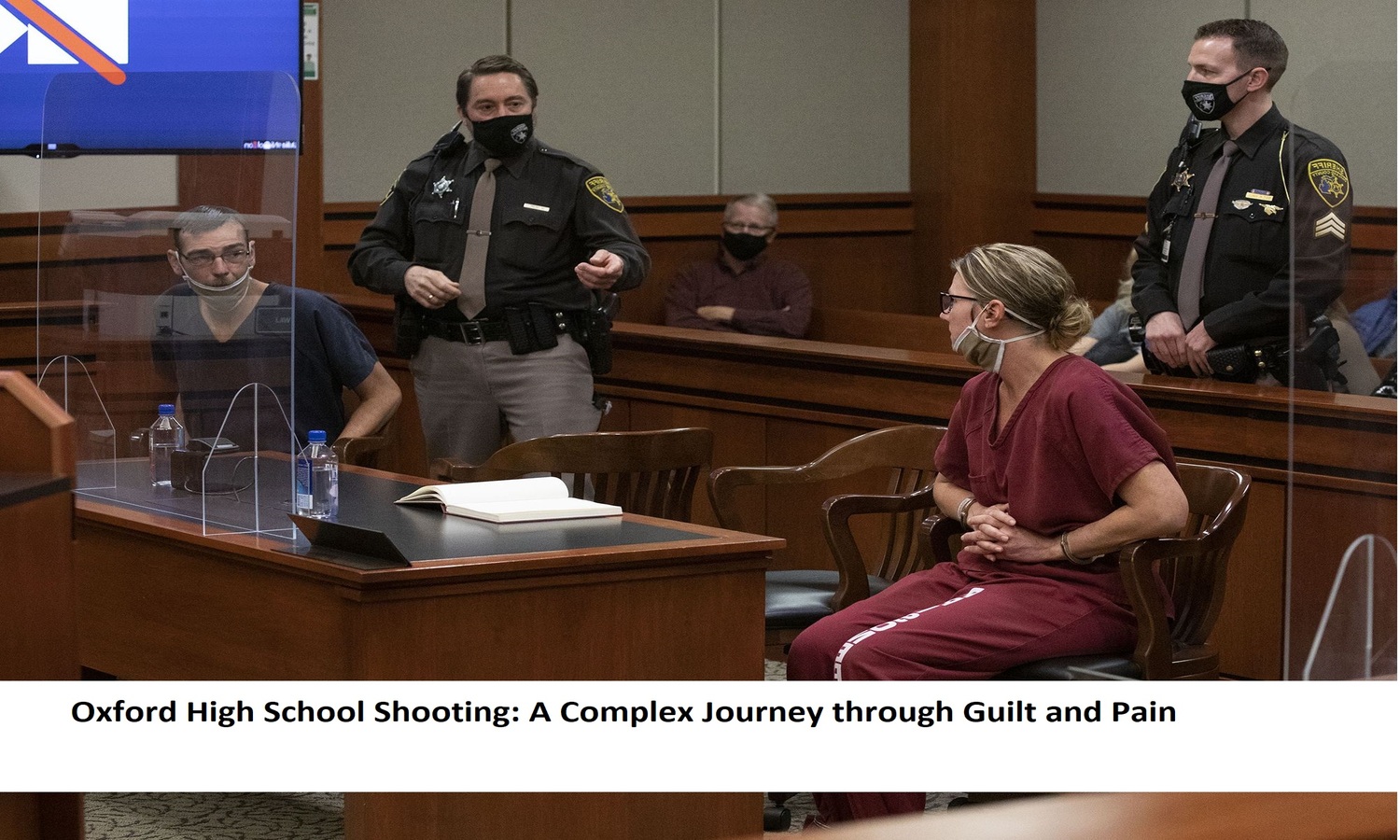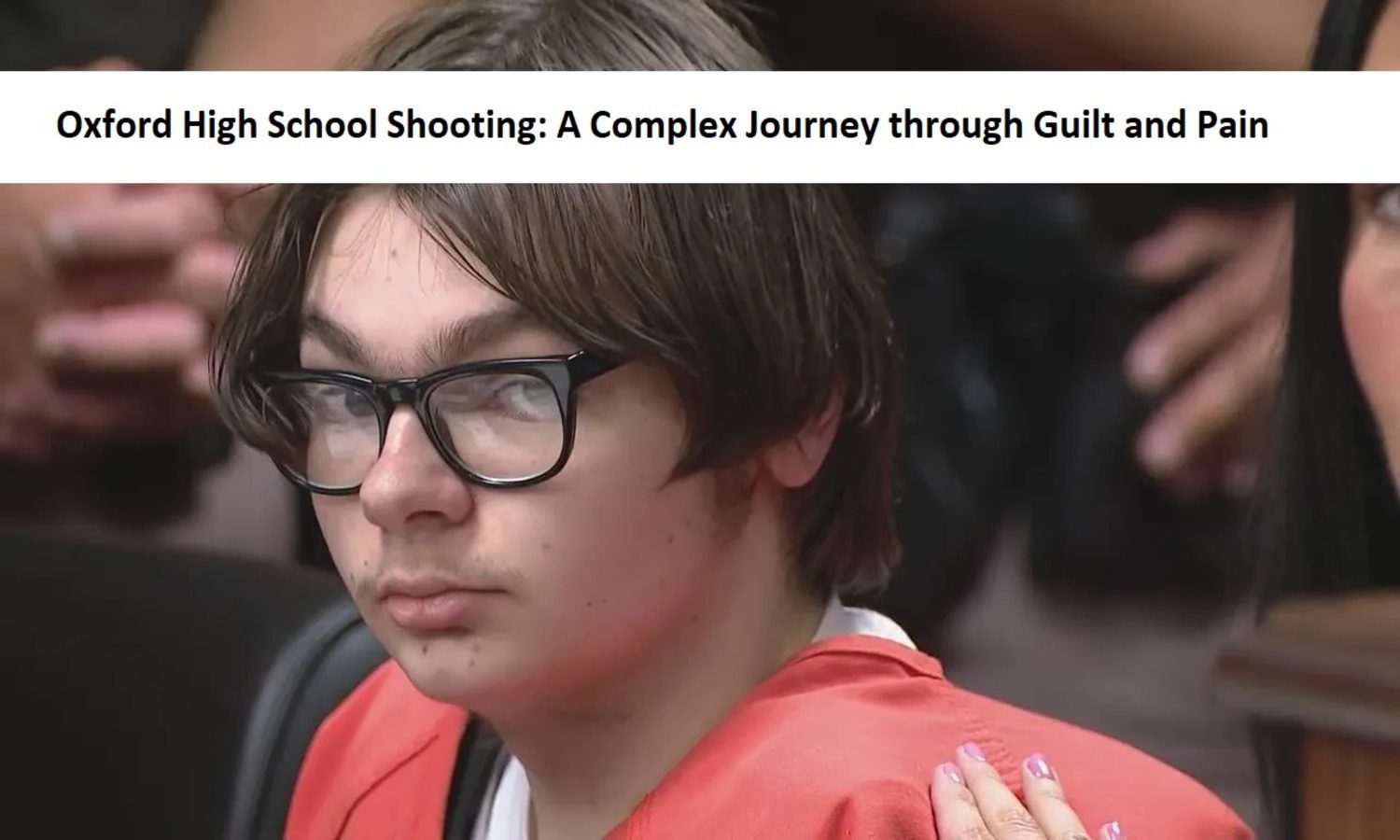Oxford High School Shooting: Ethan Crumbley, the school shooter, stated in his disturbing manifesto that God had no power. “No God,” he said. I’m Satan. No afterlife. I’ll shoot everyone in the hallway right now.” Still, months later, a fresh Crumbley pleaded, “Why didn’t you stop it, God?” Truthfully, God!
These disparate aspects of Crumbley were highlighted in a crucial court hearing. The court had to decide if a life sentence without parole was justified for the teenager convicted of killing four classmates and wounding seven others in the 2021 Oxford High School mass shooting in Michigan.
A complex play of stories in the courtroom attempted to explain Crumbley’s thoughts. Never-before-seen jail footage showed his body writhing while chained to a chair and covered with a hood to control his outbursts. This showed his pain. Crumbley’s confused guilt-and-hate shouts echoed off the walls. He begged, “He could have stopped it, and He could have saved her.” Crumbley’s sobs filled the room.
Psychiatrist Colin King’s assessment of Crumbley’s mental health was insightful. Untreated mental illness, childhood trauma, and a dysfunctional support system shaped his journey. “Why didn’t you stop it, God?” signaled a split with reality and a madness-like unraveling. “Why, God?” A young mind becomes confused by a panic attack and existential emptiness.
The jury heard competing stories in the courtroom. The defense argued that Crumbley may change and move forward using King’s evidence. The prosecutor offered an entirely different opinion than the defense because they wouldn’t adjust their mind. The prosecution claims that Crumbley’s acts will haunt him for the rest of his life, not withstanding his youth.
A teacher who was shot, a kid who watched a buddy die, and an assistant principal who dealt with the repercussions were troubling prosecution witnesses. Each story painted a picture of panic and agony in the courtroom, showing that Crumbley had caused much suffering.
Colin King labored to understand Crumbley’s thoughts. He faced difficult questions about guilt, illness, and the complex interplay between upbringing and mental health. It portrayed a mind trapped in a maze and a young person’s spirit ensnared in a web of misery. Itshowed a sophisticated intellect.


Metaphysical problems like whether the parents should be held accountable, mental illness, and the delicate balance between empathy and accountability surrounded the search for justice. King, always insightful, discussed childhood stress and neglectful parents. He mosaiced a shattered support structure.
This judicial music clashed stories for the entire nation to hear. Crumbley’s sorrowful screams and thoughtful journal entries made it hard not to think about human nature and fate. The truth was a complex patchwork of minds and hearts in the courtroom.
READ MORE : Angus Cloud: A Heartfelt Tribute to the Talented ‘Euphoria’ Actor.

